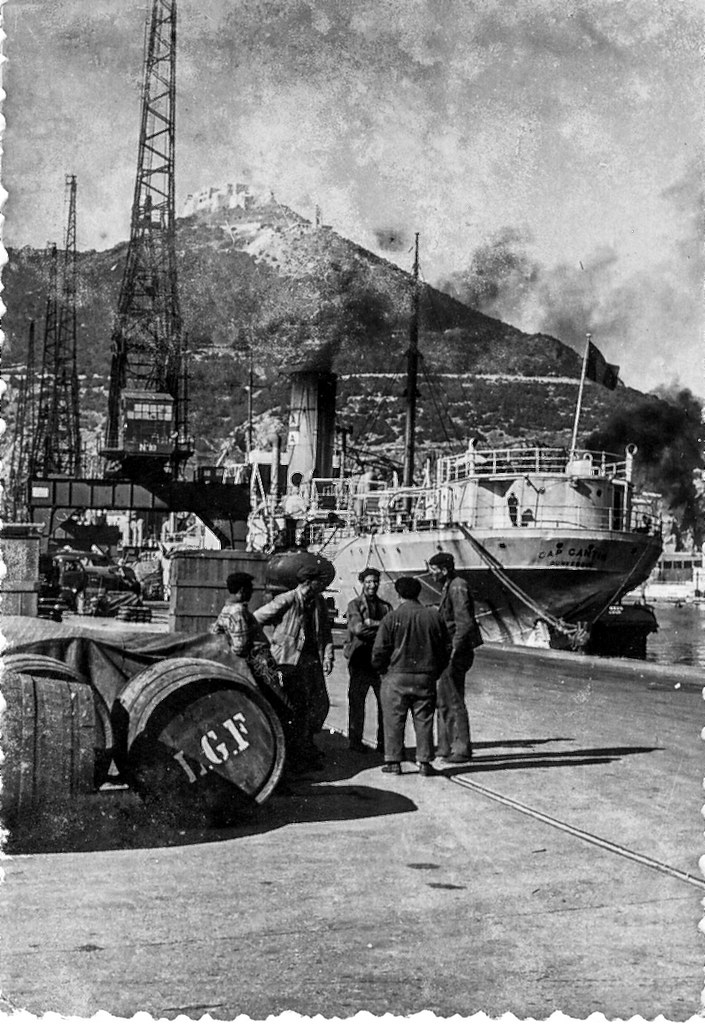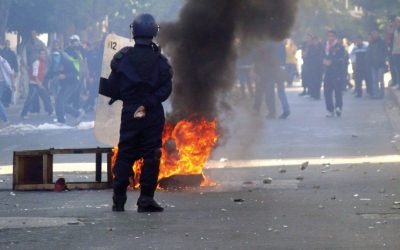Historical Background of the Algeria-France Conflict
The conflict between Algeria and France has deep historical roots, primarily stemming from France’s colonization of Algeria in the 19th century. The invasion in 1830 marked the beginning of a lengthy struggle for independence, characterized by intense resistance from Algerian nationalists. Over the decades, this unrest evolved into a fierce and protracted war that profoundly affected both nations and shaped their future relations. Understanding this historical background is essential to grasp the complexities of their ongoing relationship and the lasting impact of colonialism on North African history.
Colonial Conquest and Settlement
The historical background of the Algeria-France conflict is rooted in a long history of colonization and resistance. France established control over Algeria in 1830, initiating a prolonged period of colonial rule that lasted for 132 years. During this time, France systematically implemented a policy of conquest, settlement, and exploitation, transforming Algeria into a crucial part of the French Empire. The colonial settlement was characterized by the influx of European settlers, known as colons or pieds-noirs, who established farms, businesses, and administrative centers, often displacing local populations and disrupting traditional socio-economic structures.
This colonial conquest was marked by violent confrontations and oppressive policies aimed at consolidating French dominance. Indigenous Algerians faced racism, land dispossession, and political marginalization, which fueled ongoing resistance movements. Over time, demands for independence and national identity grew stronger, culminating in the Algerian War of Independence beginning in 1954. The conflict was brutal, involving guerrilla warfare, counterinsurgency efforts, and significant human rights violations. The war ultimately led to Algeria gaining sovereignty in 1962, ending French colonial rule but leaving a legacy of deep-seated tensions and influence that continue to shape Algerian-French relations today.
Marginalization and Resistance Movements
The Algeria-France conflict has deep historical roots stemming from France’s colonization of Algeria beginning in 1830, which marked the start of a prolonged struggle for independence. Over more than a century of colonial rule, Algerians faced economic marginalization, cultural suppression, and political disenfranchisement, fueling widespread resentment and resistance. This oppressive environment led to the rise of various resistance movements, most notably the National Liberation Front (FLN), which organized armed struggle against French forces starting in 1954. Throughout this period, Algerians sought to assert their national identity and challenge colonial dominance, often risking their lives to oppose marginalization and assert their sovereignty. The conflict culminated in the Algerian War of Independence, culminating in independence in 1962 and the end of French colonial rule. The history of this conflict remains a testament to the resilience of the Algerian people’s desire for self-determination and their ongoing efforts to address the legacy of colonization and marginalization.
Path to Independence and War Declaration
The Algeria-France conflict has deep historical roots rooted in France’s colonial domination of Algeria, which began in 1830. Over more than a century, the colonization led to profound social, economic, and political inequality, fostering resentment among the Algerian people. During this period, Algerians faced discrimination and exploitation, which fueled growing demands for independence. The desire for self-determination intensified in the early 20th century, culminating in a widespread movement against colonial rule.
The path to independence gained momentum after World War II, as nationalist groups such as the National Liberation Front (FLN) emerged, advocating for Algerian sovereignty. Tensions escalated through protests, strikes, and acts of resistance, which were often met with harsh repression by French authorities. The conflict reached a boiling point in 1954 when the FLN launched the Algerian War of Independence, marking the beginning of a brutal and protracted struggle. This war involved guerrilla warfare, counter-insurgency measures, and widespread violence, culminating in France’s decision to begin negotiations. After years of conflict, the Evian Accords were signed in 1962, officially recognizing Algerian independence and ending the war. This chapter remains a pivotal moment in both nations’ histories, symbolizing the end of colonial rule and the beginning of a new era of national sovereignty for Algeria.
Major Phases of the Algerian War of Independence
The Algerian War of Independence was a pivotal conflict that spanned from 1954 to 1962, marking Algeria’s struggle to end French colonial rule and establish sovereignty. This war can be understood through its major phases, each characterized by significant events, strategies, and shifts in tactics that ultimately led to Algeria gaining independence. Analyzing these phases provides insight into the complex and intense nature of this historic conflict between Algeria and France.
Beginning of the Armed Struggle (1954-1956)
The beginning of the armed struggle in the Algerian War of Independence (1954-1956) marked a significant phase in the fight against French colonial rule. It was characterized by the formal launch of revolutionary activities aimed at achieving independence for Algeria from France.
- On November 1, 1954, the National Liberation Front (FLN) initiated a series of coordinated attacks known as the Toussaint Rouge (“Red All Saints”) operations. These attacks targeted military and administrative positions across Algeria, signaling the start of the armed conflict.
- The initial phase saw widespread guerrilla warfare, sabotage, and ambushes against French forces. The FLN aimed to destabilize French control and garner support among the Algerian population.
- In response, France declared a state of emergency and deployed additional military units to suppress the uprising. The conflict escalated as both sides engaged in intense military confrontations.
- During this period, the FLN also focused on political organization, establishing underground networks and gaining international sympathy for their cause. The French authorities, on the other hand, intensified their counter-insurgency operations.
- The beginning of this armed struggle laid the foundation for a protracted and complex war, which would last until independence was finally achieved in 1962.
Escalation and International Involvement (1956-1958)
The Major Phases of the Algerian War of Independence, particularly between 1956 and 1958, marked a critical period characterized by escalation and increased international involvement. During this period, the conflict intensified as the National Liberation Front (FLN) launched widespread guerrilla warfare against French colonial forces, aiming to achieve independence for Algeria. The French government responded with harsh military measures, including amped-up counterinsurgency tactics and mass arrests, which further fueled the cycle of violence. Internationally, the war drew increased attention and concern, with countries and organizations beginning to scrutinize France’s actions and the broader issue of colonialism. Diplomatic pressure mounted, and debates over colonial policies gained global significance. This phase of escalation ultimately set the stage for profound political shifts in France and negotiations that would lead toward Algerian independence. The conflict’s escalation and the international community’s involvement underscored the war’s status as a pivotal moment in decolonization history.”
Decisive Battles and Tactics
The Algerian War of Independence was characterized by several major phases, decisive battles, and innovative tactics that ultimately led to Algeria gaining independence from France. This conflict, which lasted from 1954 to 1962, was marked by intense guerrilla warfare, political struggle, and military engagements on both sides.
The war can be divided into three primary phases:
- Initial Insurgency (1954-1956): This phase involved the start of organized guerrilla attacks by the National Liberation Front (FLN) against French colonial forces, aiming to weaken French control and gain international support.
- Escalation and Confrontation (1956-1958): During this period, violence intensified, and both military and political efforts expanded. The Battle of Algiers was a notable event during this phase, showcasing urban guerrilla tactics.
- Final Negotiations and Independence (1958-1962): After political upheaval in France and changing public opinion, negotiations led to the Evian Accords, granting independence to Algeria.
Decisive battles in the war included:
- The Battle of Algiers (1956-1957): A critical urban confrontation where FLN militants coordinated bombings and attacks, and French forces implemented brutal counterinsurgency tactics, highlighting the complexity of urban warfare.
- The Battle of Isser (1958): Marked by crucial engagements between French paratroopers and FLN fighters, influencing the control over rural areas.
- The Battle of Souk Ahras (1960): A significant confrontation involving combined military and counterinsurgency operations which demonstrated the escalating intensity of the conflict.
Both sides employed distinctive tactics during the war. The FLN relied heavily on guerrilla warfare, sabotage, and ambushes to counteract its inferior conventional military power. Urban guerrilla tactics, such as bombings and targeted assassinations, were prominent. France responded with a range of counterinsurgency strategies, including harsh repression, systematic interrogation, and the use of special forces like the Parachute Regiment to dismantle FLN networks. The war’s brutality and the tactics used significantly impacted the course of the conflict and shaped the future of Algeria and France.
The Role of Propaganda and Political Strategies
The Algerian War of Independence was a complex and pivotal conflict that unfolded through several major phases, each characterized by evolving tactics and international dynamics. Initially, the conflict began with political protests and diplomatic efforts aimed at gaining autonomy from France. As tensions escalated, the emergence of armed guerrilla warfare by the National Liberation Front (FLN) marked a significant shift toward militant struggle, fueling a prolonged and violent resistance. The Battle of Algiers epitomized the urban warfare tactics used during this period, highlighting the intense struggle for control and the brutal repression by French forces. In the final phases, negotiations and international pressure increasingly influenced the outcome, ultimately culminating in the Evian Accords and the independence of Algeria in 1962. Throughout these phases, propaganda and political strategies played crucial roles in shaping both domestic and international opinion. The FLN effectively employed propaganda to garner global sympathy, emphasize the legitimacy of their cause, and mobilize support domestically and abroad. France, meanwhile, used political strategies to justify its military presence and frame the conflict as a necessary measure to maintain order and its colonial interests. Both sides relied heavily on messaging to sway public perception, making propaganda a key element in the broader political landscape of the war. Overall, the phases of the Algerian War were deeply intertwined with strategic use of propaganda and political tactics, which ultimately influenced the trajectory and outcome of the struggle for independence.
Key Events and Turning Points
The Algeria and France war, also known as the Algerian War of Independence, was a pivotal conflict that shaped the history of both nations. Key events and turning points in this struggle marked the transition from colonial rule to independence, highlighting the resilience and determination of the Algerian people. Understanding these moments offers insight into the profound impact of the war on political, social, and international dynamics.
The Battle of Algiers and Urban Warfare
The Algeria and France war was marked by significant key events and turning points that shaped the course of the conflict. One of the most pivotal moments was the Battle of Algiers, which took place between 1956 and 1957. This campaign was a strategic effort by the National Liberation Front (FLN) to destabilize French control over the capital city and garner international support for independence. The battle involved intense urban warfare characterized by guerrilla tactics, bombings, and counterinsurgency operations.
The Battle of Algiers was a defining moment in the war due to its brutal tactics and psychological impact. It demonstrated the effectiveness of urban insurgency and highlighted the challenges faced by the French military in maintaining control through conventional methods. The urban warfare environment allowed the FLN to operate within densely populated neighborhoods, blending with civilians and employing hit-and-run tactics that increased the complexity of military operations.
Urban warfare in the Battle of Algiers underscored a broader shift in modern insurgencies, emphasizing the importance of city-based resistance and the difficulties of fighting in civilian areas. The French military implemented measures such as house-to-house searches and detention centers, which while temporarily effective, also drew international criticism and increased resentment among the Algerian population. The battle ultimately influenced both French military strategies and the broader international perception of the conflict, becoming a turning point that accelerated the push for independence and altered future guerrilla warfare tactics globally.
The Évian Accords and Ceasefire Agreement
The Algeria and France war, also known as the Algerian War of Independence (1954-1962), was marked by significant key events and turning points that ultimately led to the end of French colonial rule in Algeria. One of the most important milestones was the signing of the Évian Accords, which paved the way for independence and peace.
- The outbreak of the war in 1954, initiated by the National Liberation Front (FLN), marked the beginning of a brutal struggle for independence.
- Intensified military operations and guerrilla warfare characterized the conflict, which gained international attention and heightened tensions between the two nations.
- The Évian Accords, signed on March 18, 1962,, represented a pivotal turning point, providing a framework for ceasefire and independence. The agreements included provisions for the rights of settlers and the return of refugees.
- Following the accords, a ceasefire was declared, leading to a referendum where the Algerian people overwhelmingly voted for independence.
- Algeria officially gained independence on July 5, 1962, ending nearly eight years of war and marking a significant shift in North African colonial history.
Independence Declaration and Recognition
The Algeria and France war, also known as the Algerian War of Independence, was marked by significant key events and turning points that shaped the course of the struggle. The conflict officially began in 1954 when the National Liberation Front (FLN) launched a guerrilla campaign against French colonial rule. A major turning point was the Battle of Algiers in 1957, which brought international attention to the brutality of the conflict and increased French military involvement. The war intensified with widespread violence and political upheaval in both Algeria and France, leading to calls for negotiations and change.
The struggle for independence culminated in the declaration of independence by Algeria on July 5, 1962. This declaration was a pivotal moment, formally ending centuries of French colonial rule and establishing Algeria as a sovereign nation. The recognition of Algeria’s independence was swiftly acknowledged by many countries around the world, although France’s official recognition came after the Evian Accords were signed in March 1962, ending hostilities and recognizing Algerian independence. The war and its aftermath significantly impacted France’s political landscape and led to a process of decolonization across Africa and other regions.
The Impact of the War on France
The war between Algeria and France profoundly affected the landscape, society, and politics of France. It marked a pivotal period in history, influencing national identity and igniting debates about colonialism, independence, and human rights. The conflict’s repercussions are still felt today, shaping the relationship between the two nations and leaving a lasting legacy on French society.
Political and Social Repercussions
The war between Algeria and France had profound political and social repercussions in France, shaping the nation’s future in significant ways. Politically, the conflict intensified debates over colonialism, sovereignty, and the country’s global position. It exposed deep divisions within French society, leading to increased polarization around the government’s policies in Algeria and fueling the rise of anti-war and pro-independence movements. The war also prompted constitutional changes and military reforms as France grappled with the challenges of maintaining its empire.
Socially, the conflict deeply affected both French citizens and Algerian immigrants living in France. The war intensified racial tensions, discrimination, and debates over integration, as large numbers of Algerian nationals migrated to France, fleeing violence and seeking opportunities. The societal upheaval contributed to a shift in public attitudes toward empire and colonial subjects, fostering a growing awareness of ethnic identity and demands for social justice. The war’s legacy continued to influence French political discourse and social cohesion long after the conflict ended, shaping debates on race, immigration, and national identity.
Military and Economic Consequences
The war between Algeria and France had profound military and economic consequences for France, shaping its national trajectory for decades. Militarily, France faced significant challenges, including insurgent tactics and guerrilla warfare that tested the limits of its colonial army. The protracted conflict resulted in substantial casualties, technological adaptations, and a reevaluation of colonial military strategy. Economically, the war drained France’s resources, leading to increased government spending on military operations and reconstruction efforts. The economic instability prompted inflation, rising public debt, and disrupted trade patterns. Additionally, the war’s political fallout fueled debates over colonial policy, pushing France to reconsider its presence in Algeria and ultimately contributing to the country’s decolonization process. The conflict’s legacy influenced France’s defense policies and economic priorities in the subsequent decades, marking a turning point in its modern history.
Shift in Public Opinion and Policy
The Algeria-France war, particularly the Algerian War of Independence from 1954 to 1962, profoundly impacted France both culturally and politically. The conflict led to widespread social upheaval, with significant loss of life and deep divisions within French society. As the war intensified, public opinion shifted, with increasing opposition to the colonial administration and the military’s methods. This change influenced policymakers to reconsider France’s commitment to maintaining Algeria as a colony, ultimately paving the way for negotiations and independence. The war also catalyzed debates on issues of national identity, colonialism, and human rights, prompting reforms within France and shaping its future approach to its remaining colonies.
The Aftermath and Legacy of the Conflict
The conflict between Algeria and France, lasting from 1954 to 1962, left a profound impact on both nations, shaping their histories and relations for decades to come. The aftermath of the war saw Algeria gaining independence, but it also resulted in deep societal divisions, economic challenges, and ongoing debates over historical memory. The legacy of this conflict continues to influence diplomatic relations and collective identities, highlighting the enduring scars and complex reconciliation between the two countries.
Formation of Post-Independence Algeria
The aftermath and legacy of the conflict between Algeria and France, particularly the Algerian War of Independence, had profound impacts on the newly independent nation and its relationship with France. This war, which lasted from 1954 to 1962, left deep scars and shaped the future political, social, and cultural landscape of Algeria.
Following independence, Algeria faced numerous challenges in establishing a stable government, rebuilding an economy damaged by years of war, and addressing social divisions caused by the conflict. The war’s brutal nature fostered a sense of unity and national identity among Algerians, but also left unresolved issues related to violence, trauma, and the legacy of colonial rule. The conflict significantly influenced France’s internal politics and prompted debates over colonialism, human rights, and its own national identity.
- Formation of a Post-Independence National Identity: Algerians sought to forge a new sense of nationhood rooted in their fight for independence, often emphasizing cultural heritage, language, and history distinct from colonial influences.
- Impact on Franco-Algerian Relations: Diplomatic and economic ties remained complex, shaped by both cooperation and residual tensions stemming from colonial history and the war’s legacy.
- Memory and Reconciliation: The conflict remains a sensitive topic in both countries, affecting social narratives, commemorations, and ongoing discussions about colonial legacy and justice for war atrocities.
- Social and Political Consequences: The war’s aftermath saw the rise of nationalist political movements within Algeria, as well as debates over the role of the military and the development of state institutions.
- Legacy of Violence and Trauma: Generations of Algerians and French citizens carried the memories of violence, which continue to influence cultural and political discourse in both countries today.
Ultimately, the war’s aftermath shaped the modern identity of Algeria, making it a pivotal episode in the country’s history and a critical chapter in the legacy of decolonization worldwide.
Reconciliation and Meurtre of Historical Narratives
The aftermath and legacy of the Algeria-France war remain deeply impactful, shaping the socio-political landscape of both nations long after the conflict’s end. The war, which culminated in Algeria’s independence in 1962, left scars that influenced generations, fueling ongoing debates over identity, sovereignty, and historical accountability. Reconciliation between France and Algeria has been a complex process marked by efforts to address colonization’s brutal realities, yet certain wounds persist, hindering full national healing. The battle over historical narratives plays a significant role, as each country seeks to define its version of events—often contesting the portrayal of colonial violence, resistance, and independence. The narratives surrounding events like the Battle of Algiers, the use of torture, and the mass exodus of pieds-noirs continue to evoke passionate debates, complicating reconciliation efforts. Ultimately, confronting these contested histories remains essential for fostering mutual understanding, but the legacy of conflict continues to influence diplomatic and cultural relations today. Addressing historical injustices and acknowledging multiple perspectives are crucial steps toward building a more inclusive and truthful shared history between Algeria and France.
Influence on Decolonization Movements Worldwide
The conflict between Algeria and France, particularly the Algerian War of Independence (1954-1962), had profound and lasting impacts on both nations and the broader global landscape. The war not only led to the end of French colonial rule in Algeria but also reshaped perceptions of colonialism and sovereignty worldwide. The intense struggle for independence galvanized liberation movements across Africa, Asia, and Latin America, inspiring indigenous populations to challenge imperial powers. Algeria’s successful push for independence became a powerful symbol of anti-colonial resistance, prompting many other colonies to pursue self-determination with renewed vigor.
The legacy of the Algerian War significantly influenced decolonization efforts by highlighting the importance of national identity, military resistance, and political activism. It exposed the contradictions of colonial rule and the brutal realities of colonial conflicts, encouraging a reevaluation of imperial policies among Western powers. Furthermore, the war contributed to a shift in international attitudes, fostering greater support for independence movements and challenging existing geopolitical structures. The conflict also left a lasting imprint on France, leading to internal debates about colonialism, national identity, and colonial policies that continue to resonate today.
Overall, the Algerian War’s aftermath extended beyond the immediate political gains, shaping the historical memory of resistance and independence. It underscored the interconnectedness of struggles across the globe, inspiring future generations to pursue justice, sovereignty, and self-determination. The war’s legacy remains a testament to the enduring human desire for freedom and the transformative power of sustained resistance against colonial domination.





0 Comments